Ceremony to mark the establishment of the UNESCO Chair on Teacher Education for Sustainable Development

Boštjan Podlogar/STA
Date of publication:
A gala ceremony was held at the Assembly Hall of the Rector’s Office to mark the official founding of the UNESCO Chair on Teacher Education for Sustainable Development at the University of Ljubljana, which will be headquartered at the Faculty of Education. The Chair will facilitate cooperation between international researchers and teaching staff at the university and those based in other institutions within the country and around the world.
The ceremony was addressed by Professor Gregor Majdič, University of Ljubljana Rector, who stressed the need for greater attention to be paid to study programmes in the field of education at the university, as they are key providers of social knowledge and vital to a sustainable future. Speeches were also given by State Secretary at the Ministry of Higher Education, Science and Innovation Urban Kodrič, and by Magdalena Landry, Director of UNESCO’s Venice Office, who congratulated the university and the chairholder for acquiring the UNESCO Chair. ‘The global challenges we are facing, from climate change to digital transformation, require us to equip our teachers and educators with the knowledge and tools to inspire future generations to create sustainable solutions,’ she said.
Professor Gregor Torkar, holder of the newly established UNESCO Chair: ‘Universities have a central role to play in social changes that will bring about a more sustainable future. As holder of the new UNESCO Chair, I feel a great responsibility to meet expectations and fulfil the goals that UNESCO have set us,’ he said. He then went on to set out the purpose and aims of the Chair and its first steps.
The keynote speaker at the ceremony was Professor Daniel Fischer, holder of the UNESCO Chair in Higher Education for Sustainable Development at Leuphana University in Germany, whose speech highlighted the importance of universities to social transformation and a sustainable future. He also stressed the need for a comprehensive institutional approach to sustainability, and outlined the roles that the UNESCO Chairs play in this.
The opening speeches were followed by a round table on quality training of teachers for sustainable development, featuring Magdalena Landry (UNESCO Office, Venice), Professor Daniel Fischer (Leuphana University, Germany), Professor Hannu L. T. Heikkinen (University of Jyväskylä, Finland), Professor Ksenija Vidmar Horvat (Vice-Rector, University of Ljubljana), Professor Janez Vogrinc (Dean of the Faculty of Education, University of Ljubljana), Professor Tomaž Grušovnik (University of Primorska) and Gašper Hrastelj (General Secretary of the Slovenian National Commission for UNESCO). The round table focused on projects taking place as part of the Recovery and Resilience Plan, particularly the project to update education study programmes at all three public universities in Slovenia. The participants also called for greater recognition of the teaching professions, as they constitute the bedrock of a well-informed and well-educated society.
The events were accompanied by music performed by accordion player Mile Đurđević Žojan.
-
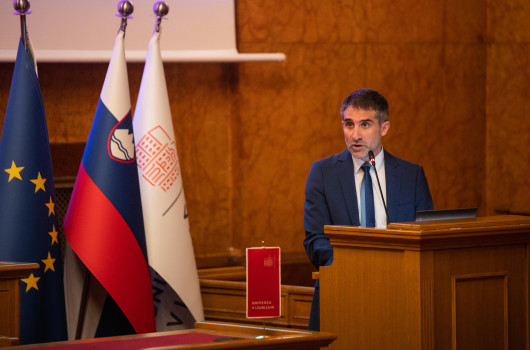
Prof. dr. Gregor Torkar, predstojnik novoustanovljene UNESCO katedre
Author: Boštjan Podlogar/STA
-

Prof. dr. Janez Vogrinc, dekan Pedagoške fakultete Univerze v Ljubljani
Author: Boštjan Podlogar/STA
-
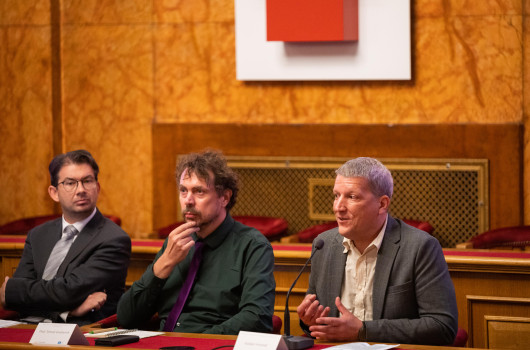
Gašper Hrastelj, generalni sekretar Slovenske nacionalne komisije za UNESCO
Author: Boštjan Podlogar/STA
-
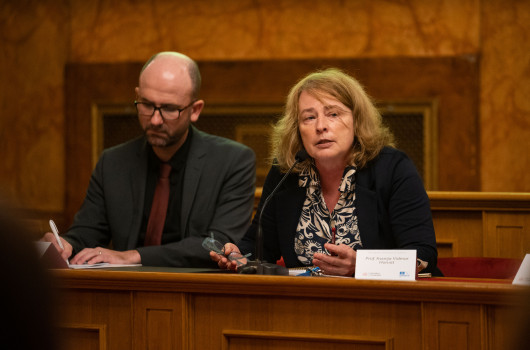
Prof. dr. Ksenija Vidmar Horvat, prorektorica, Univerza v Ljubljani
Author: Boštjan Podlogar/STA
-
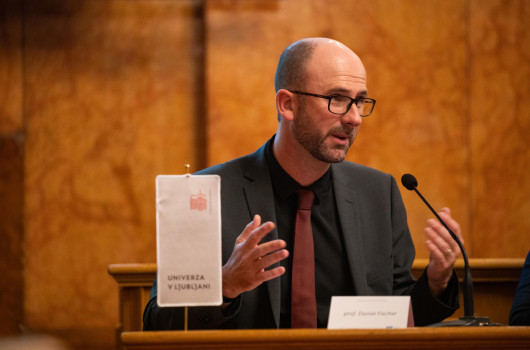
Prof. dr. Daniel Fischer, Univerza Leuphana
Author: Boštjan Podlogar/STA
-

Author: Boštjan Podlogar/STA
-
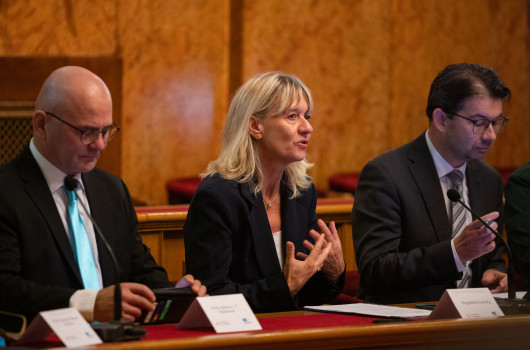
Magdalena Landry, direktorica UNESCO pisarne v Benetkah
Author: Boštjan Podlogar/STA
-
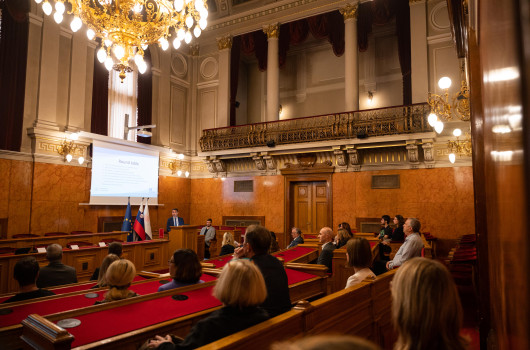
Author: Boštjan Podlogar/STA
-
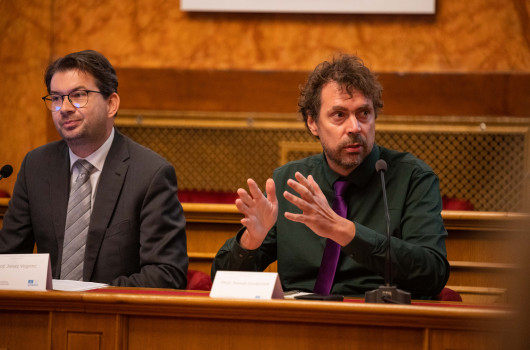
Prof. dr. Tomaž Grušovnik, Univerza na Primorskem
Author: Boštjan Podlogar/STA
-
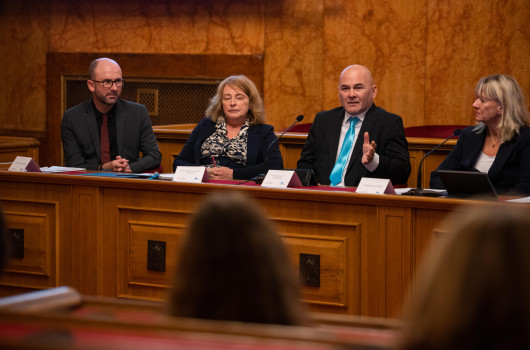
Author: Boštjan Podlogar/STA


